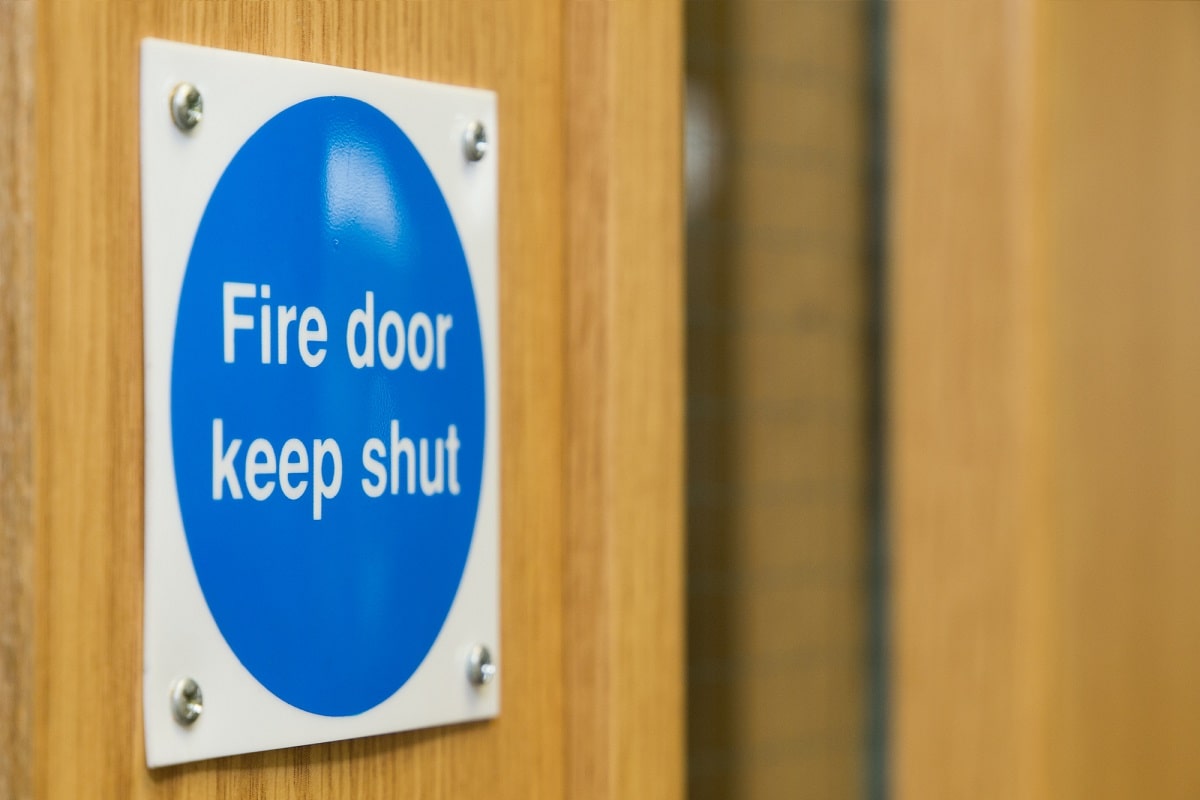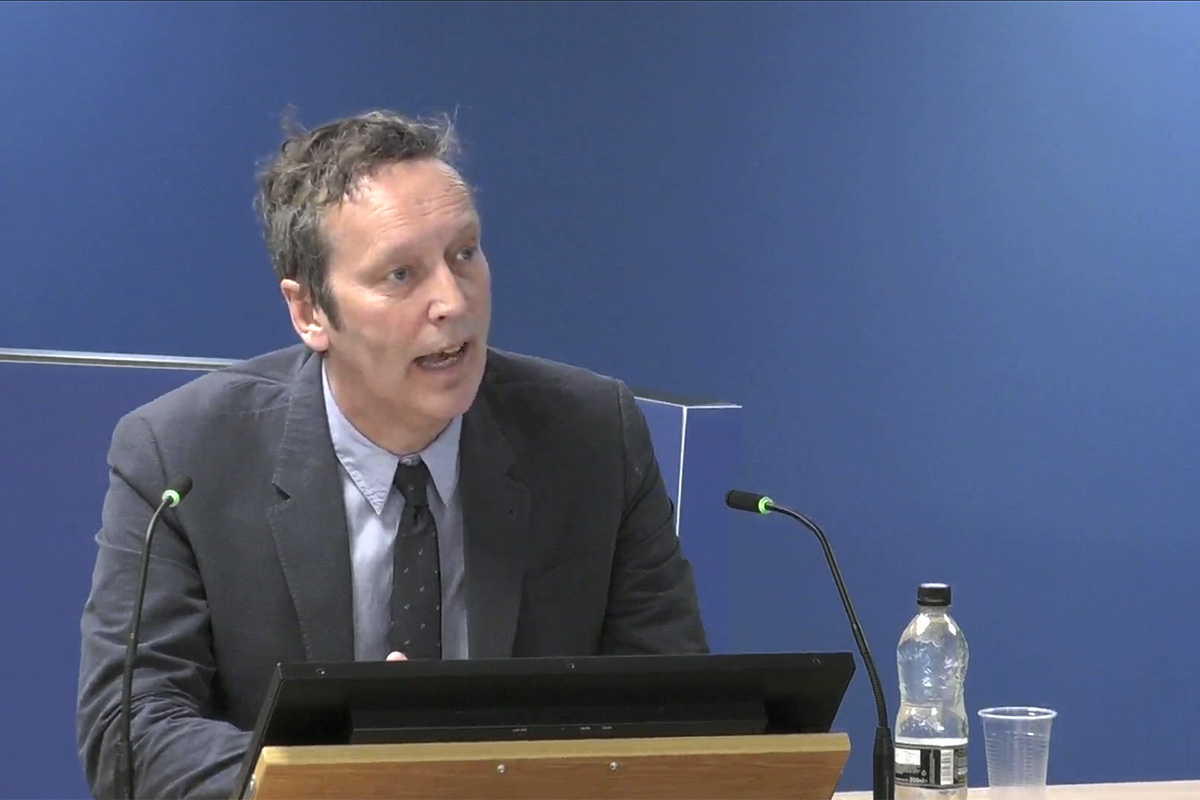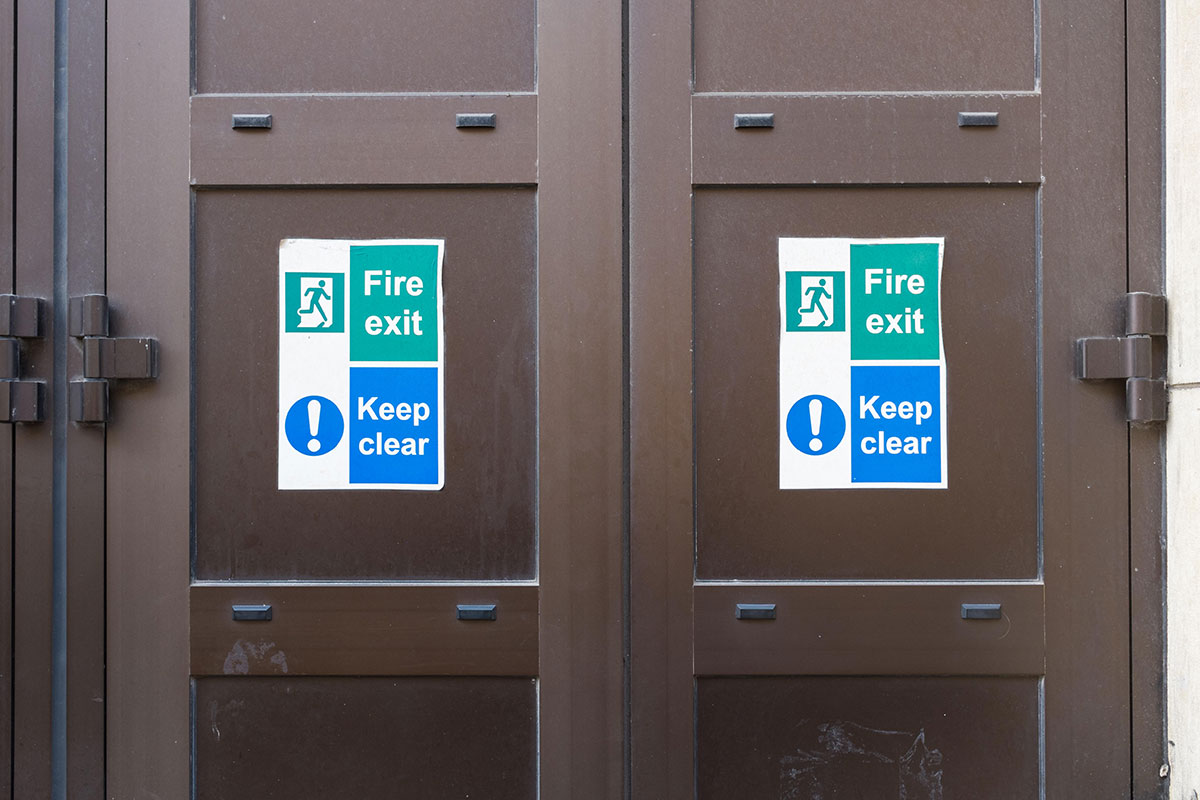You are viewing 1 of your 1 free articles
Housing providers urged to put processes in place as new fire door requirements come into force
Housing providers have been urged to put new policies and procedures in place to ensure compliance with new regulations on fire door checks which come into force today.
Regulations requiring regular checks on fire doors under the Fire Safety (England) Regulations 2022 come into force today and mark a major new addition to the sector’s regular safety responsibilities.
The rules require ‘responsible persons’ to carry out quarterly checks on doors in communal areas, and annual checks on flat entrance doors in buildings taller than 11 metres.
These follow the recommendation of the Grenfell Tower Inquiry in October 2019, which suggested more regular checks in a wider range of buildings.
The inquiry found that the catastrophic failure of ‘self-closing’ devices on flat entrance doors in the tower was a major contributing factor to the rapid loss of ‘compartmentation’ inside Grenfell Tower.
As the first residents to be affected fled their homes, their doors did not swing shut behind them, which meant thick, choking smoke rapidly filled the tower’s lobbies and prevented other residents from escaping.
It later emerged that two-thirds of the tower’s doors had broken or missing self-closers, despite repeated warnings from the London Fire Brigade to landlord the Royal Borough of Kensington and Chelsea and a ‘deficiency notice’ served in November 2016 specifically raising this issue in regard to Grenfell Tower.
Failing self-closers were also a major contributing factor to the Bronx fire in New York in January last year, which killed 17 people including eight children.
Research last year by the Fire Door Inspection Scheme warned of a “tragedy waiting to happen” after revealing that 100,000 inspections it carried out produced a failure rate of 75%.
The new regulations require providers to check entrance doors on a ‘best endeavours’ basis, with sector experts saying the checks should be treated in a similar way to mandatory annual safety checks on gas boilers.
Mark Foxcroft, a partner at Devonshires, said: “It’s likely that ‘best endeavours’ requires more steps to be taken to ensure compliance than if the term ‘reasonable endeavours’ had been used.
“It requires the interpretation of the courts, but the government’s recent guidance suggests that the responsible person will need to get an injunction order to compel an inspection where they can’t get access.”
He added: “The duty is annual from 23 January, so duty holders will have a year to get these first checks done. What we are really stressing with clients is that it is necessary to have policies and procedures in place, and then to ensure you have sufficient personnel to put them into practice as soon as possible.”
Victoria Moffatt, head of building and fire safety programmes at the National Housing Federation (NHF), added: “Housing associations’ top priority will always be the safety of their residents. The sector has been taking action to implement fire safety regulations ahead of them coming into effect today.
“While these necessary additional fire safety checks will require more resident co-operation, we know they will ultimately make homes safer. The NHF and our members are committed to taking the necessary steps to ensure that homes are compliant with the latest regulation and we will continue to work with residents so that they are safe, and feel safe, in their homes.”
Sir Martin Moore-Bick, chair of the Grenfell Tower Inquiry, had initially recommended quarterly checks in all buildings with multiple dwellings, regardless of height.
But when the government first consulted on implementation, it suggested limiting this to every six months in buildings taller than 18 metres and annually in blocks between 11 and 18 metres. The final regulations have further diluted this to annual checks for buildings of all heights.
It is understood concerns have been expressed about a building owner or managers ability to gain access to a property so frequently in order to carry out the checks.
Jenny Harris, chair of the Midlands region at the National Social Housing Fire Strategy Group, said: “I really feel this will be an opportunity to engage with residents, because knocking on front doors to explain why we’re doing it will be really helpful.
“The view that we’re getting from residents is that we’re going to have to be very flexible, we’ve got to be aware that our residents have got lives. We need to have lots of options for them to book the checks and be prepared to work around them, not ask them to work around us. It will drive improvements in how we offer services generally.”
She added: “The view we are getting from other social landords is that the majority of housing associations who do the basic compliance checks in house already will continue to do it in house, and some are hiring additional staff to deal with this. Where organisations were already contracting out, they are adding this to the contracts.”
It is understood that the cost of the inspections are likely to be passed on to leaseholders in private buildings, as most leases provide for statutory compliance inspections to be recharged.
However, the cost is far lower than intrusive cladding tests and will not add much to existing bills for gas and electrical safety checks.
Where a door needs to be replaced, the cost may sit with the leaseholder depending on the terms of the lease.
The law will be enforced by local fire and rescue services, but it is likely the Regulator of Social Housing will also oversee housing providers’ compliance, as it currently does with gas safety and other statutory safety requirements.
In an instance where the social landlord is not the freeholder of the building, for example where they have purchased flats to be used as affordable homes from a private builder, Mr Foxcroft said it is important to ensure the right entity is complying with their responsibilities, which would depend on the circumstances.
“The law puts the onus on the responsible person, but it is not always immediately clear who that is,” he explained.
“If the lease makes the freeholder responsible for the safety and maintenance of common parts, they are likely to be responsible for complying with the requirements.”
Sign up for our fire safety newsletter
Already have an account? Click here to manage your newsletters





